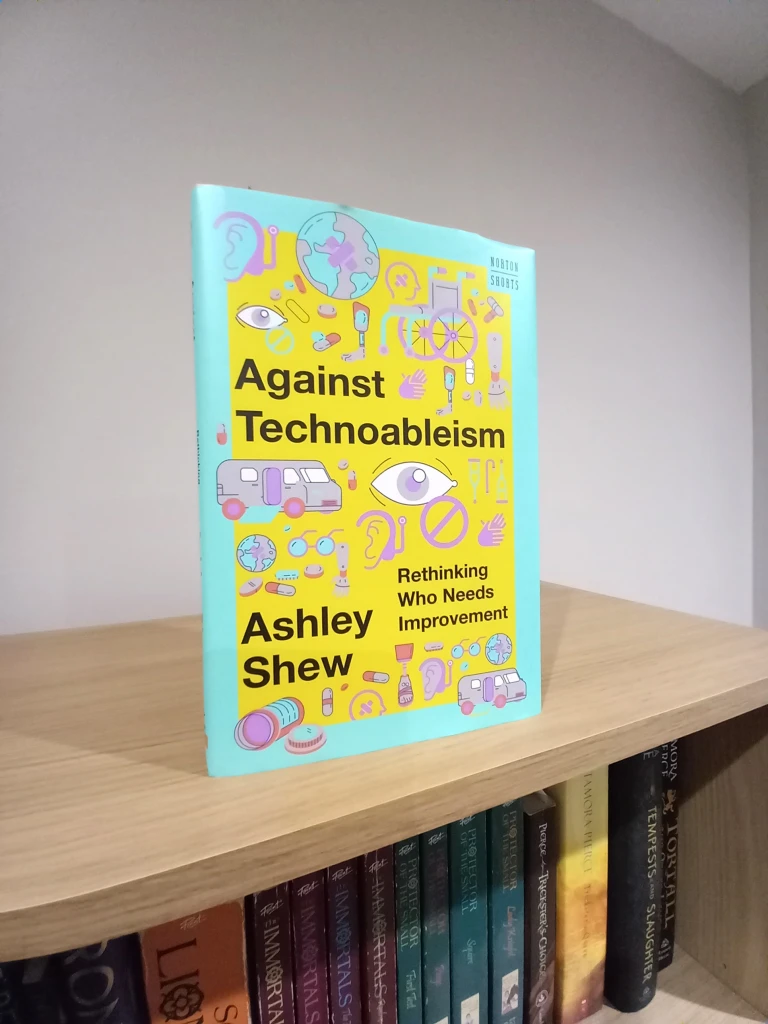Against Technoableism: Re-thinking Who Needs Improvement, By Ashley Shew: A Review Written By: Jason Hahr

Image of Against Technoableism: Rethinking Who Needs Improvement, By: Ashley Shew Standing Up On Bookshelf. The Voiceless Minority has gained tremendous traction over the last several months, and it will always be my primary outlet for my advocacy work. We have grown tremendously and had the opportunity to incorporate guest writers, including a permanent contributor, Michelle Zeman. We have also been given an excellent opportunity to present at the largest Disability Expo in the nation this upcoming June. The Expo is known as The Family Café, and we are honored to have the chance to be among some great self-advocates and allies over the three-day event. While all that is something to be celebrated, this blog will discuss my next advocacy adventure and a book that I have recently read. I finished my fellowship with Florida Sands late last year and was unsure what to do next. Luckily, the universe presented my next opportunity rather quickly. I was selected as a 2025 IEEE Spectru...